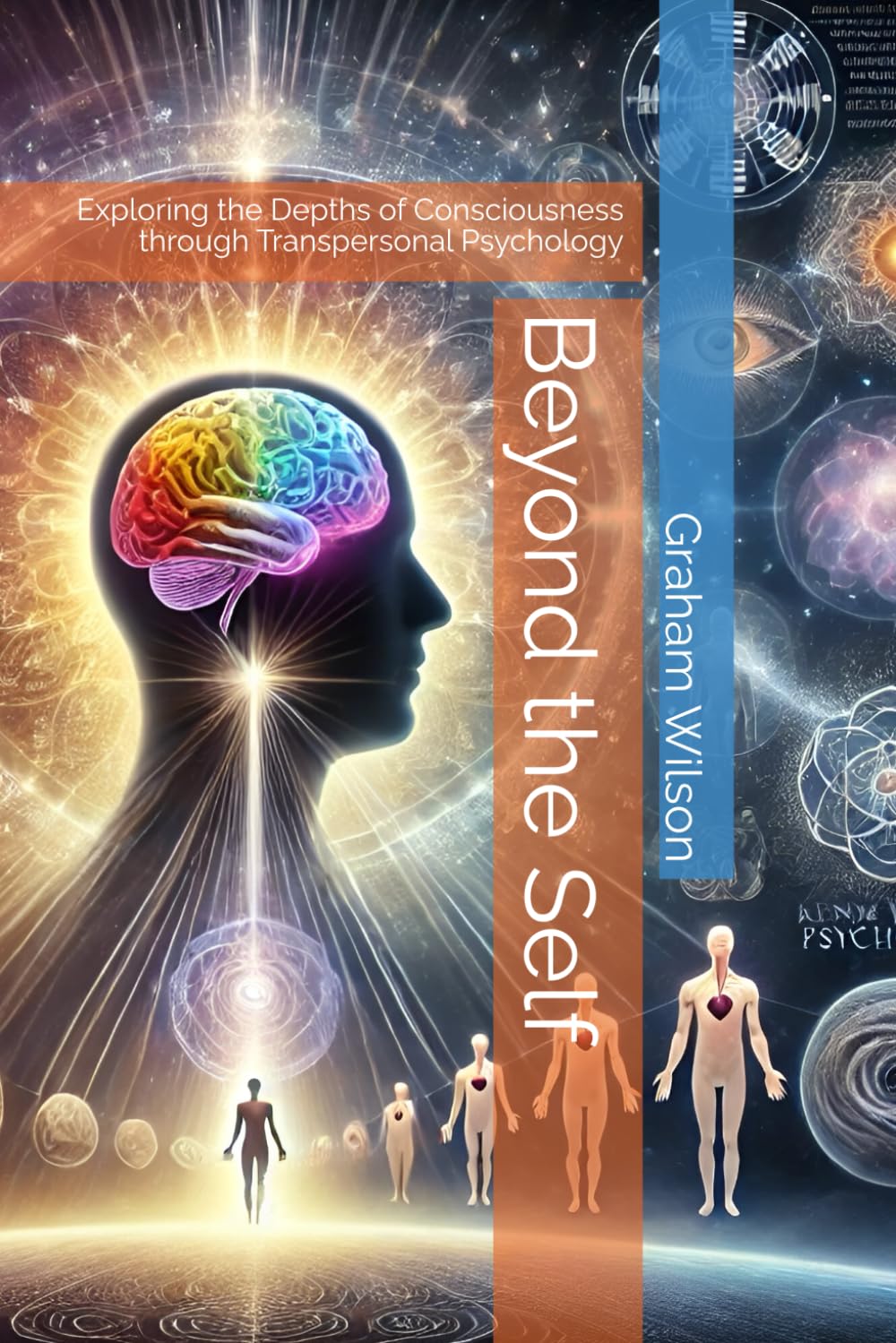From the Amazon rubric: “Beyond the Self: Exploring the Depths of Consciousness through Transpersonal Psychology offers an in-depth exploration of transpersonal psychology, a field that merges spirituality with psychological science. The book provides a comprehensive overview of the spiritual dimensions of human experience, presenting a blend of theories, practices, and insights that extend beyond conventional psychology.
The journey begins with the emergence of transpersonal psychology in the 1960s, rooted in the humanistic psychology movement. Key figures like Abraham Maslow, Carl Jung, and Ken Wilber contributed to the field by exploring concepts such as self-actualization, the collective unconscious, and the spectrum of consciousness. These foundational ideas underpin a deeper understanding of human consciousness that transcends the ego, connecting individuals with universal dimensions.
The author elaborates on the theoretical foundations of transpersonal psychology, discussing Maslow’s extension of his hierarchy of needs to include self-transcendence, Jung’s archetypes within the collective unconscious, and Wilber’s integral theory, which synthesizes psychological and spiritual insights into a cohesive model of human development. These theories collectively offer a framework for understanding how individuals can transcend personal identity and connect with a greater cosmic or divine consciousness.
The book also covers altered states of consciousness, a central theme in transpersonal psychology. Graham discusses practices like meditation, mindfulness, and psychedelics, which can induce these states, offering profound insights and facilitating personal transformation. Near-death experiences and creative flow are explored as additional pathways to accessing transpersonal states.
Spiritual development throughout the life cycle is another key focus. Using models such as Fowler’s Stages of Faith and Wilber’s spectrum of consciousness, Graham examines spiritual growth across different life stages, from childhood through later adulthood. This perspective emphasizes spiritual growth as a dynamic, lifelong process.
He provides practical guidance on transpersonal practices, including meditation, breathwork, visualization, mindfulness, and sacred rituals, as methods to foster spiritual growth and psychological well-being. These practices are presented not just as therapeutic tools but as means to deepen self-awareness and connect with the sacred.
The book also discusses the integration of transpersonal experiences into daily life, highlighting the challenges and the transformative potential of these experiences. The author offers strategies for integration, including therapeutic support, spiritual practices, and community engagement.
He then addresses controversies within transpersonal psychology, such as debates over its scientific rigour and the risks of cultural appropriation. He advocates for a culturally sensitive approach that honours the spiritual traditions from which transpersonal practices are derived.
In its final chapters, the book looks to the future of transpersonal psychology, suggesting that it will increasingly integrate scientific advances, address global issues, and embrace cultural diversity. Graham envisages a future where transpersonal psychology plays a crucial role in promoting global well-being and fostering cross-cultural dialogue.
Beyond the Self is an essential read for those interested in the intersection of psychology and spirituality. It offers a scholarly overview of transpersonal psychology and practical tools for personal growth, making it accessible to both academics and practitioners. Through this book, readers are invited to explore the transformative potential of transpersonal psychology for individuals and society alike.”
The book is intended to accompany my 10 week Continuing Education course which begins in January 2025: https://www.conted.ox.ac.uk/courses/introduction-to-transpersonal-psychology.



